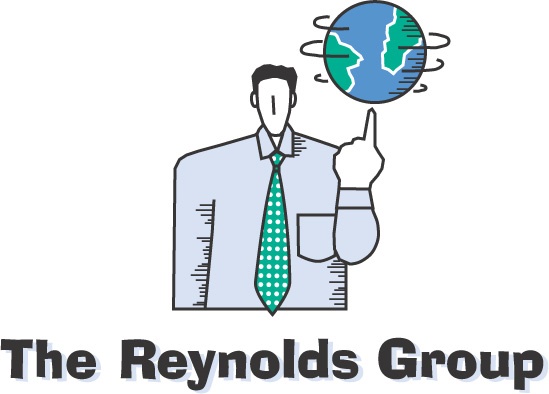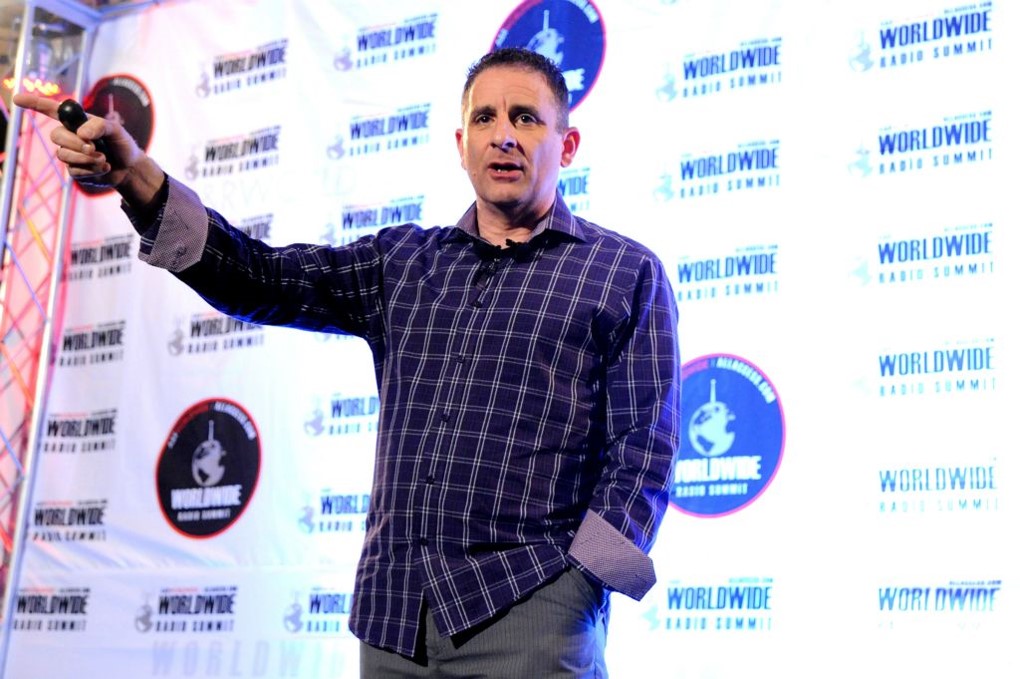 I have known Steve Reynolds for the better part of two decades – as talent in the early years, and these days as an expert coach of radio talent at a time when personalities play an increasingly more important role in the appeal and “stickiness” of radio.
I have known Steve Reynolds for the better part of two decades – as talent in the early years, and these days as an expert coach of radio talent at a time when personalities play an increasingly more important role in the appeal and “stickiness” of radio.
Steve and I first met when he was part of the great morning team, Reynolds & Silva on WRDU. In 1999, Steve connected his professional dots and realized the industry’s ongoiong need for great talent coaching. And so The Reynolds Group was launched and Steve hasn’t looked back.
He has worked with shows in markets of all sizes in both the U.S. and Europe. He’s launched new shows, resurrected old ones, and has found a way to bring out the best in the talent he works with. Steve is a true believer in the investment of “human capital,” something that we share with him here at Jacobs Media. He’s one of the best at what he does and we’re pleased he was gracious enough to share his wisdom on our “Guest List” feature. – FJ
In the last few years of my on-air career, I’d grown bored and restless. Wanting a fresh challenge and a new look at the morning show we successfully did on then Classic Rock WRDU/Raleigh, I’d pestered the general manager into letting me watch focus groups. Always a dicey move, that GM relented after about a year, knowing the potential peril that was in store for an insecure morning guy by letting him see, in real-time, what regular people had to say about his show.
It was a Tuesday evening with two groups of P1s, some truly bad Chinese food for dinner, what was a seemingly endless supply of M&Ms, and me, braced on the wrong side of the two-way mirror watching.
One listener had one mildly negative thing to say about me and they adored my partner. I left crushed.
After I’d “recovered,” I grew fascinated as I reviewed my notes. This was the first true outside look at our show I’d had in nine years — these were the people who controlled our fate, and they spoke the truth. What I believed did not matter (or mattered less). They shared what they liked about the show, what they didn’t like, their perceptions of each cast member, and (most importantly), why they returned each day. They got my attention.
That was the night my company was born.
In the many years since, in markets large and small, with some exceptionally talented and very smart personalities, I’ve embarked on that same experiment. To develop with each cast and station a unique content strategy to help them stand out (I call it a “plot”), to earn images that compel fans to return, and give them a healthy (yet compassionate) dose of how average people — those who control their fate — use their show.
The following is a conversation I have with each, once July and August are done. It’s another splash of “this is how outsiders see us” so they stay grounded and in sync with doing connective, unique, fun radio so the audience returns each day:
With summer now over, kids having returned to school, vacations and plane delays done, listeners will settle back into normal fall routines over the next several weeks. Cume returns to morning shows, and schedules are saner for listeners.
Most morning shows hate summer. Ratings are affected because people leave town. Phones go quiet (always a disruptor), and some shows are thrown a tad off their game because of it, easily believing that no one is listening.
With life back to normal, here are five very critical reminders every talent should heed, especially if you’re a personality-driven show:
1. Listeners know less about your show than you think they do.
And they forgot a lot over the summer because of that disconnect. We often convince ourselves into believing listeners have infinite knowledge of all we do, when the exact opposite is true. Let me prove the point: you are a Verizon Wireless customer. What do you know about them? You have no knowledge where their towers are; how many people they employ; what data plans are offered (you may not even know your data plan!); where the stores are located; what breadth of services they have for personal and business customers, etc.
What you know is that no matter where you go, you get five bars, your calls and texts connect, and you always get online. If this is all you know about Verizon (very little), why would we think the audience knows everything about you? So, as listeners return to their fall routines, remind them who you are and what your show is about (its plot, if you know it).
Frequent resets by the cast are essential to acclimating the audience to what they’re listening to when they turn you on. Routines are important when you wake up and this aids that. Do not let them be confused and don’t assume they know who they’re listening to.
2. Explain regular features to help them.
The same goes for your regular features. The phrase, “If you just joined us,” is so important because it gives the audience critical context for everything and respects them with information to make it easy at this weird time of the day when their defenses are down and they don’t have the mental bandwidth to process stuff. Even for longtime fans, there is no downside to briefly explaining what a feature is all about before doing it. Help them so they don’t leave you because they’re confused. The easier you make it on them, the more inclined they will be to hang out and have a good time.

3. Teasing creates images for another occasion of listening.
Teasing, especially if done properly, is so important. The purpose of teasing is not to extend listening (when the audience has to go, they must leave – very little can keep them there). Teasing offers forward momentum and compels an image that if they tune away for any reason, they’ll miss something great, which will make them want to come back the next day out of the fear of missing something. Teasing is an art and cannot be figured out during the song just before you deliver it.
If you’re properly planned out (and you should be), your teases should be written the day before. And remember – sentences are easier than paragraphs – the shorter the tease is, the better chance the audience will digest it properly. True to this, teasing someone to the fun thing you’re doing the next day at that time can be more valuable to get them to return than the thing you’re doing in fifteen minutes. Horizontal teases feed both purposes: create anticipation with a true reason to come back (another occasion!).
4. Use social media for the right reasons.
Never underestimate the power of social media to groom a relationship with your fans. But use it properly as listeners get reengaged with the show. Social media should not be used to manipulate people to turn the show on. Remember, we choose everything because of content. So as you interact with listeners on social media, make them laugh or feel something by the content you share or do. That’s the smartest way to develop a relationship with them so when they’re inclined to listen, they choose you.
Don’t try to get them to leave any social media platform because they can win something or why they should turn you on for a feature/bit. Consumers push back from sales pitches so be very sensitive to this (especially the selling of yourself). When we choose YouTube, we go there for content: that funny dog video, learning how to fix the toilet, wanting to see how to set up that new gizmo. None of us (zilch, 0%) watches the commercial we’re forced to so YouTube can make money. Every single one of us clicks the “skip this ad” at the five-second mark to get to the content we came for.
Don’t use social media to give something out or coerce the audience to turn you on. Instead, develop a relationship with them through content that makes them emote. The more selling you do, especially at the top of the break or on social media, the greater inclination for them to tune away or keep scrolling – remember, they come for content so earn their loyalty by giving it to them, then sell them something if you have to after you’ve earned their trust.

5. Be a 100% partner in building the station brand.
Tie yourself back to your radio station. Talk about the music. Reflect on how fun the promotions are. Remind the audience about the other personalities. Too many morning shows still see themselves as separate entities; you’re just part of a larger brand that if it wins bigger, so do you. What’s happening when the music is playing? Are your monitors off or turned down? Listen to the music, feel it. Tell them the name of the artist and song title (it’s always the number one complaint in focus groups).
Understand and get involved in the promotions or community service projects the station is doing so you can more authentically talk about them to your fans. Becoming a bolder part of the station brand is best for the station and you. Create an island for yourself, and neither will do as well.
Welcome to autumn. Listeners trade one very busy time of year for another. The Pyramid of Public Awareness proves to us they have very limited knowledge of what we do. Don’t see that as an insult – but make it part of your mindset as you’re planning the show. For fans, it’s easier to tune out than to figure it out. So let’s help the listeners figure it out (often done in just one sentence) so when they tune in, they feel like they’re in the know, on the team, and in a tribe of people they know and like so they keep coming back for more.
Building Better DJs Webinar
Want more tips for on-air hosts? Check out the recording of Fred Jacobs’ webinar, “Building Better DJs: How Radio Personalities Can Grow Their Brands and Their Careers.”
More Guest Lists
- Is There “Bedrock” Down There?
- Jeff Smulyan: 5 Things Every Radio Professional Should Know About NextRadio
- Tamar Charney: 5 Tips For Great Podcasts
- Professor Dave Whitt: 5 Reasons Why It’s Important to Teach Popular Music History
- Paul Douglas: 5 Ways Radio Can Make Sense Out Of PPM
- A 2020 Lesson?It Could All Be Gone In A Flash - April 24, 2025
- How AI Can Give Radio Personalities More…PERSONALITY - April 23, 2025
- Can Radio Afford To Miss The Short Videos Boat? - April 22, 2025





Great ideas, Steve and Fred.
Regular reminders should be like locker room coaching, delivered on a consistent basis, with praise and encouragement. “These things will make us all more successful” – etc..
This week here in Boston, WZLX night jock Kenny Young explained their Zepp feature, and added to it, with programming and contest info that I could easily digest. Jimmy Page interview as well.
Non-Comm WUMB talked about their tie to the community in a concrete way – that anyone could choose to join if they wanted.
On the downside, a newly-hired team talked about the Topsfield Fair as if it were from another planet (it is America’s oldest running).
Also, a syndicated show discussed gossip about pop stars with no id’s or individual introductions – as you said “who are these people?”
Lastly, both NPR stations here are excellent at sharing on FB, with daily photos and teases. Just another reason they do so well.
Thanks, Tai. You hear what I hear. With so many stations (around the country) to listen to, you hear it all – the good, the bad, the ugly. It’s always refreshing to run into a team or host that truly gets it. Thanks for weighing in.
Great advice. But, I must reference the beginning of this article stating that personalities are playing a more important role in the stickiness of a radio station than ever. Is that because consultants and bean counters once decided that the personality was an exendable commodity so shut up and play the music? The PERSONALITIES are the only unique thing ANY station has to offer. Congratulations getting back on board with how important the personality is and always has been.
Frank, thanks for the comment. I can’t speak for other consultants or “bean counters” but I can tell you that both as a programmer and a consultant, I’ve always been a consummate believer in personalities. Not sure who you’ve worked with in the past, but there are many of us who true believers in the power and value of the people behind the mic.
God Bless you Fred Jacobs.
I love Steve & wish I could pick his brain every day.
Thanks much, Tim.